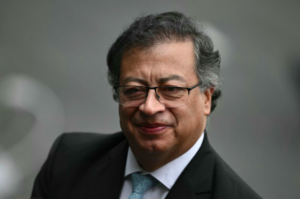February 8, Canada: Canada’s outgoing Prime Minister, Justin Trudeau, recently told a gathering of business executives that he believes former U.S. President Donald Trump may be seriously considering annexing Canada.
Trudeau suggested that Trump has floated the idea of incorporating Canada as the “51st state” to gain access to its valuable critical minerals. “Mr. Trump seems to think the simplest way to do this is by absorbing our nation, and it’s a genuine concern,” Trudeau remarked.
His statements, made behind closed doors at the Canada-U.S. Economic Summit in Toronto, were partially picked up by a microphone and later reported by multiple Canadian news outlets. The summit, organized by the Canadian government’s newly established advisory council on Canada-U.S. relations, brought together more than 100 business executives and policy analysts.
Trudeau’s remarks follow Trump’s recent threats to impose a 25% tariff on all Canadian exports to the U.S., except for energy products, which would be taxed at a lower 10% rate. The tariffs were initially set to take effect earlier this week, but Trump granted Canada and Mexico a temporary 30-day exemption in exchange for additional measures to enhance border security.
Trump has repeatedly suggested—both through posts on his social media platform, Truth Social, and in statements to reporters—that Canada could bypass these tariffs by becoming an American state. He has even referred to Trudeau as “Governor Trudeau.”
“I think the best solution is for Canada to become our 51st state,” Trump said from the Oval Office earlier this week when asked about potential Canadian concessions. The idea was first mentioned by Trump during a December dinner with Trudeau after his initial tariff threats. At the time, Canadian officials dismissed the notion as a joke.
However, Trudeau’s latest remarks indicate a possible shift in Canada’s perception of Trump’s comments.
A January Ipsos poll found that 80% of Canadians oppose merging with the U.S. and would never vote in favor of such a proposal in a referendum. For such a move to happen, it would require approval from both houses of the U.S. Congress, including a supermajority of 60 votes in the Senate.
In Canada, Trump’s threats have fueled widespread unease. With approximately 75% of Canadian exports destined for the U.S., steep tariffs could severely impact the economy and put thousands of jobs at risk. In response, some provincial leaders have launched “buy local” campaigns, urging Canadians to keep their spending within the country. Others have canceled trips to the U.S. in protest.
At the same time, Canadian officials have sought to strengthen ties with Washington, expressing openness to a Canada-U.S. partnership on energy and critical minerals. Energy Minister Jonathan Wilkinson, who has been in Washington this week for discussions with American counterparts, emphasized that deeper cooperation would be mutually beneficial.
Speaking at Friday’s summit, Trudeau warned that Canada might be facing a “more complex and prolonged political challenge with the United States” and stressed the need to bolster economic resilience and trade networks in the years to come.
For more updates subscribe to questiqa.com and questiqa.us








Average Rating